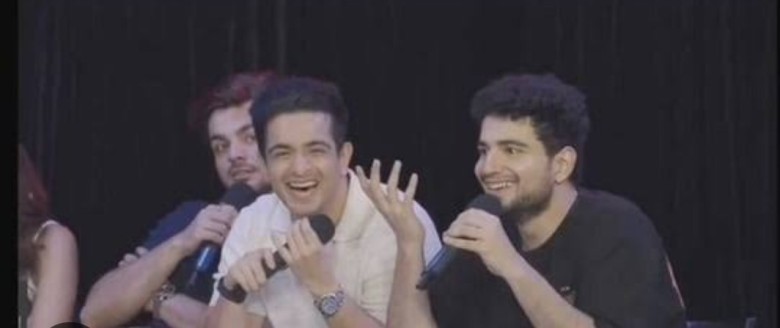Free Speech, Accountability, and Selective Outrage in India
India, as the world's largest democracy, has always had a complex relationship with free speech. While the Constitution guarantees freedom of expression, this right often comes under attack—both legally and extralegally—when sentiments are hurt. The recent controversy surrounding Ranveer Allahbadia’s remarks and the subsequent backlash, including FIRs and threats, once again highlights the deep contradictions in how India deals with controversial speech. It also brings forth an uncomfortable question: Why does society react so strongly to words while often ignoring real, systemic violence?
The Controversy: A Culture of Outrage
Ranveer Allahbadia, a well-known influencer, recently found himself in hot water over remarks that some deemed offensive. His words sparked a wave of FIRs, online abuse, and even death threats. While his comments might be problematic, the extreme reactions they provoked are even more alarming. Filing police cases over speech—unless it incites direct violence—is a dangerous precedent, as it curtails open dialogue and debate.
In contrast, India’s legal and social systems are often disturbingly silent when it comes to crimes that involve actual physical violence. Rape cases fill newspapers daily, Dalits are still attacked for trivial reasons—like drinking water from a public source—and women continue to be harassed, assaulted, and murdered. Yet, these crimes rarely trigger the kind of immediate and large-scale outrage that offensive speech does.
Selective Sensitivity: Words vs. Actions
The reaction to controversial speech in India is often swift and overwhelming. Public figures, comedians, journalists, and even ordinary citizens have faced FIRs and online mob harassment for statements deemed offensive to religious, caste, or political sentiments. However, systemic violence—whether against women, marginalized communities, or minorities—often doesn’t receive the same intensity of reaction.
For example:
Dalits being killed for drinking water from a "higher caste" well barely makes headlines.
Rape cases, including those against minors, spark temporary outrage but rarely lead to lasting policy changes.
Lynchings based on religious or caste identity happen with horrifying regularity, yet do not always provoke mass protests or legal urgency.
Meanwhile, a single tweet, joke, or remark can result in FIRs, court cases, and sometimes physical attacks. This disproportionate focus on words over actions raises an important question: Why does our society seem more hurt by speech than by actual violence?
Legal Overreach and the Chilling Effect
India’s legal framework, particularly Section 295A of the IPC (hurting religious sentiments) and the IT Act, has been used repeatedly to silence people. The problem isn’t just the law but how it is selectively applied. Those in power or with influence can often escape consequences for inflammatory remarks, while critics, satirists, and dissenters face immediate legal action.
The chilling effect of such legal overreach is severe. It discourages people from speaking openly about real issues—be it caste discrimination, gender violence, or political failures—because they fear backlash. Meanwhile, those who actually commit violence often walk free due to weak law enforcement, social apathy, or political protection.
What Should Outrage Be Focused On?
If we are truly concerned about justice and fairness, our outrage should be proportional. Words, even offensive ones, can be countered with debate, education, and discussion. But real-life violence—rape, caste killings, honor killings, communal lynchings—needs to be treated as the bigger crisis.
Strengthen legal systems: Instead of wasting resources on filing FIRs over speech, India’s law enforcement should focus on solving crimes that affect people’s lives directly.
Promote debate over censorship: Offensive speech should be countered with better speech, not legal intimidation.
Consistent outrage: If people can mobilize against a controversial remark, why can’t the same energy be directed at systemic injustices?
Conclusion
Ranveer Allahbadia’s remarks might be wrong, but filing FIRs, issuing death threats, and weaponizing the law against speech is an even greater threat to democracy. Meanwhile, countless real-life crimes go unnoticed, unpunished, or forgotten. It’s time to reassess our priorities—because a society that reacts more aggressively to words than to rape, caste violence, and honor killings is one that has lost its moral compass.




















Comments
0 comment